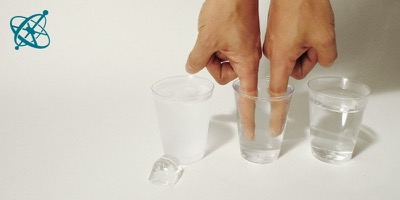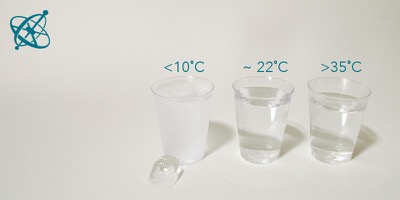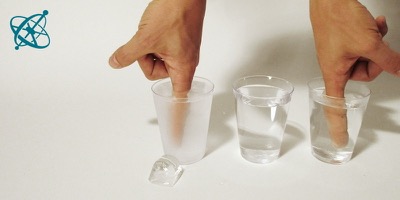 www.sciensation.org | Ciênsação hands-on experiments are published as Open Educational resources under a Creative Commons Attribution-ShareAlike 4.0 International License.
www.sciensation.org | Ciênsação hands-on experiments are published as Open Educational resources under a Creative Commons Attribution-ShareAlike 4.0 International License.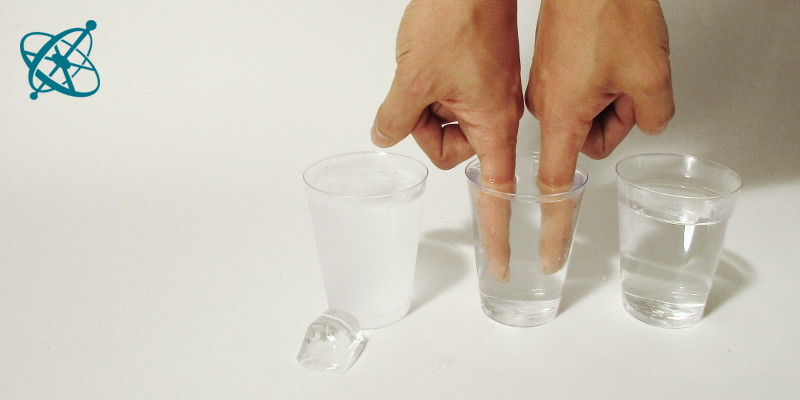
Feels warm or cold?
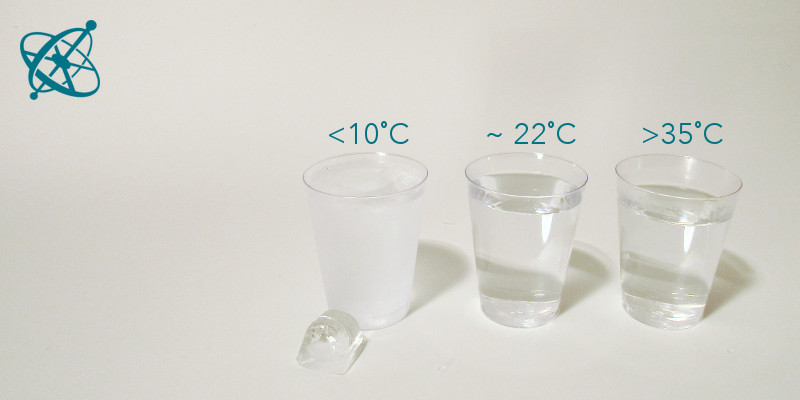
Fill three cups with cold, lukewarm and hot water, respectively.
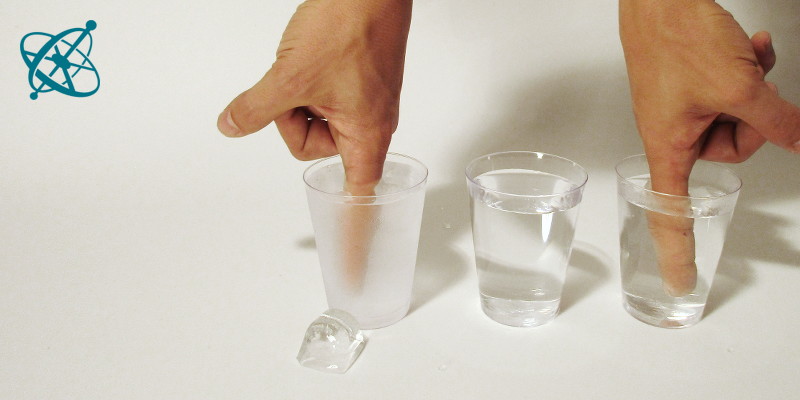
After 2 minutes in cold or hot water, how does the water in the middle feel?
Temperature perception
Within minutes, our senses adapt to the environment. They are optimized to notify us quickly about changes in a stimulus (e.g. of the temperature, color or taste) rather than to measure absolute values.
Experience and understand the adaptation of our senses to continuous stimuli.
Differentiate between relative and absolute 'measurements'.
Our senses react primarily to relative changes rather than absolute values.
Warm and cold water
Prepare hot and cold water in thermos flasks, as well as a bucket to collect the material after the experiment.
Fill 3 cups with very warm, room temperature and cold water, respectively. Hold for 2 minutes one index finger in cold and the other index finger in hot water. Then hold both fingers in the water that has room temperature.
1. Does the water in the middle feel cold or warm?
2. How does your temperature perception differ from that of a thermometer?
3. Have you observed a similar effect with other senses?
4. Why do you think our senses react like this?
What is the real the temperature of the water in the middle?
› Room temperature.
Is the temperature you feel absolute or relative to the previous environment?
› It is relative.
Is the temperature a thermometer measures absolute or relative to the previous environment?
› It is absolute, independent from the previous environment.
How do your eyes react when you enter a dark room?
› After some time they adapt, so that things appear brighter and are easier to see.
In most every-day situations, do you think it is better to know the absolute temperature, brightness or pitch of someones voice, or to detect changes and differences?
› In many natural settings it is important to note changes quickly.
Humans (and other mammals) have two types of thermoreceptors, one firing at decreasing temperatures, the other firing at increasing temperatures. Both show an effect known as adaptation, meaning that their response to a constant stimulus declines over time.
When moving a finger from cold water to the water at room temperature, cold receptors (which have adapted their output signal to the cold water) will not fire, while the warm receptors will fire strongly. As a result, our brain receives mainly 'warm' signals from this finger. The opposite effect takes place if the finger had been in hot water before.
The important finding of this experiment is for students to see that our senses react primarily on changes and adapt quickly. In contrast, most technical measurement devices, such as thermometer, provide absolute values (e.g. in degree Celsius).
